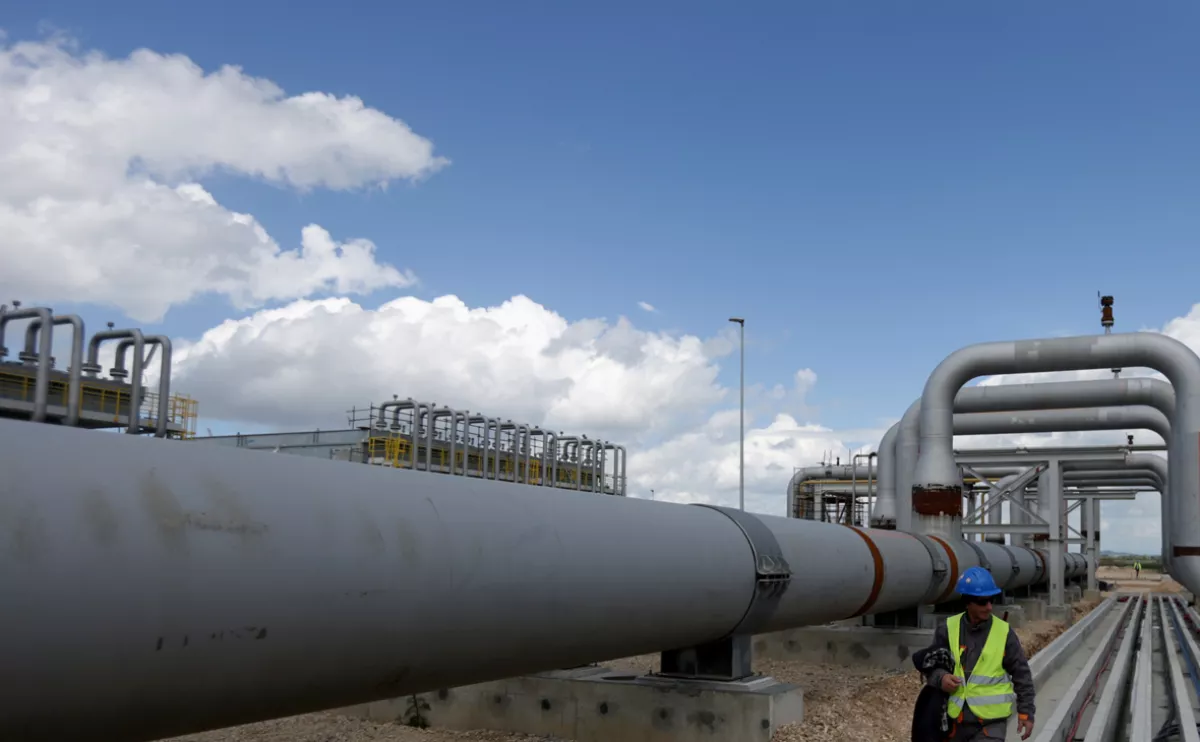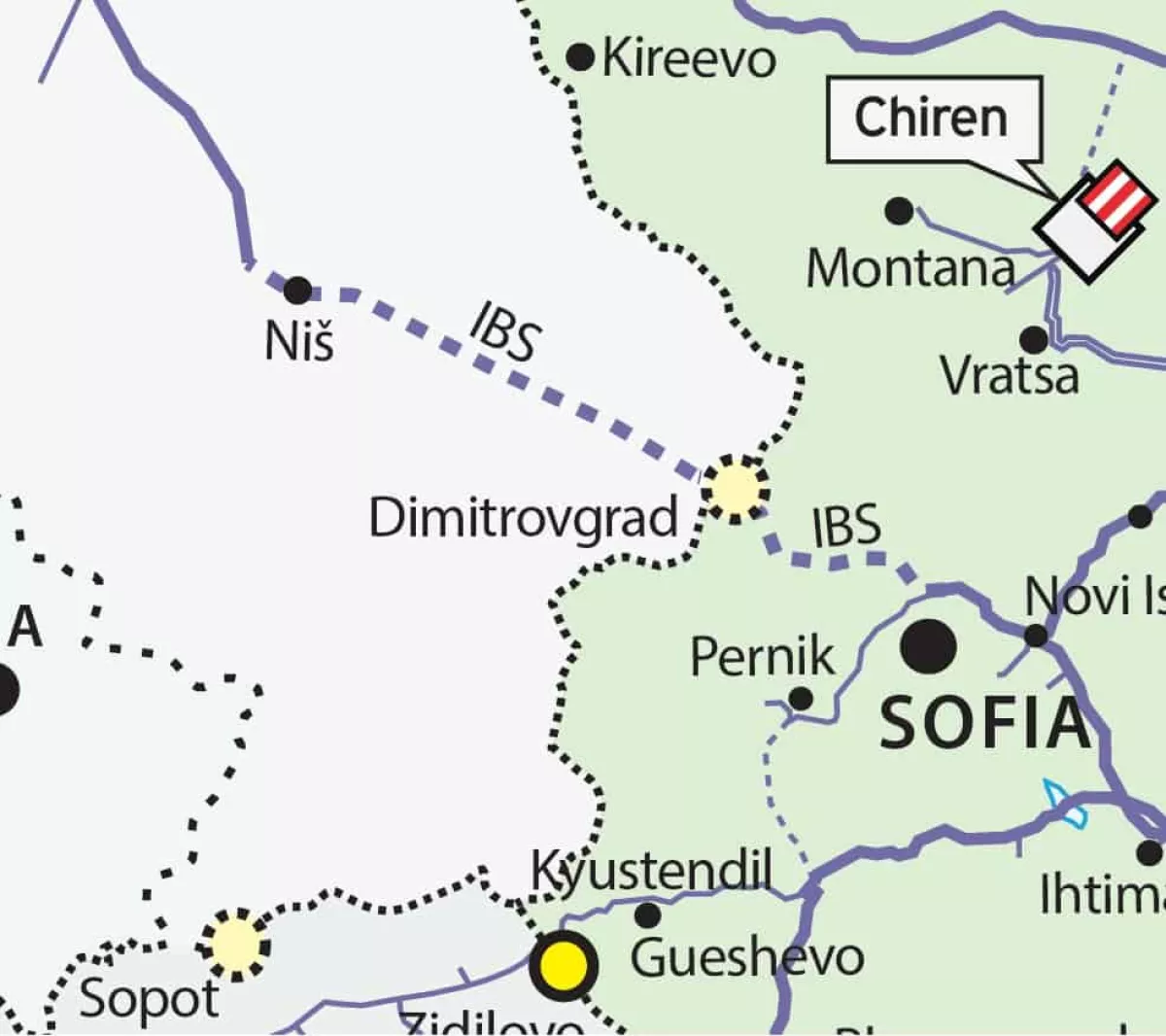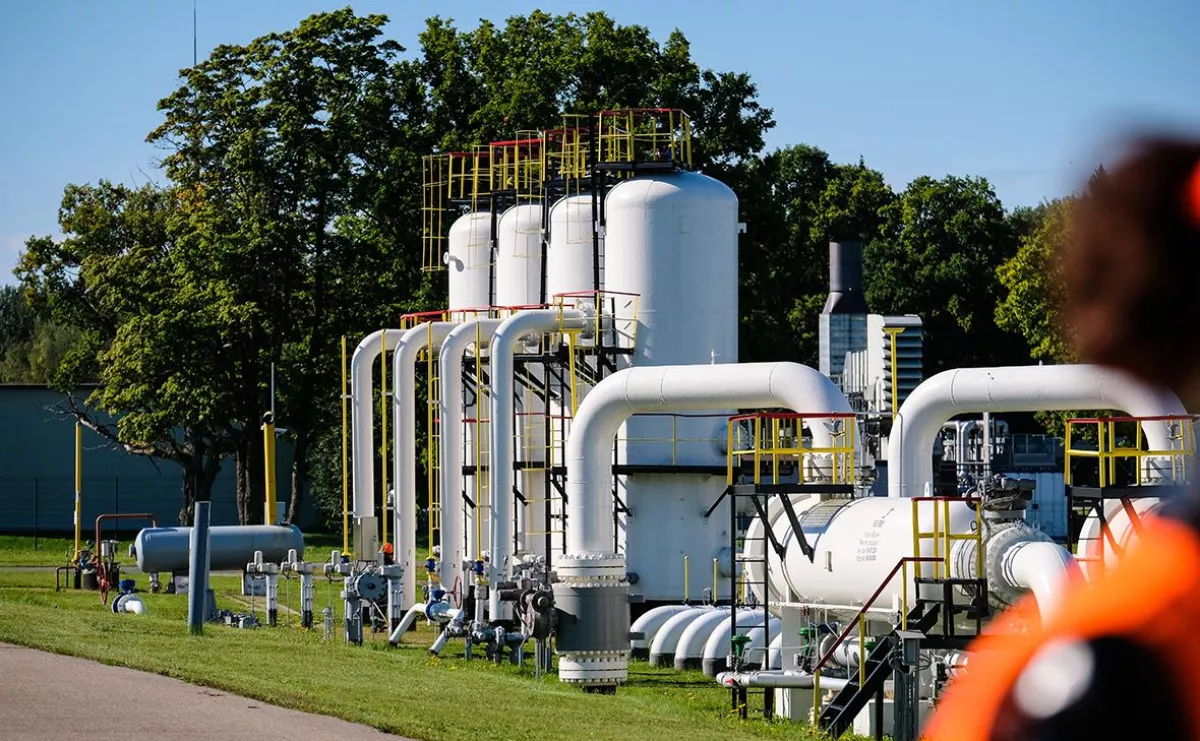Azerbaijan expands gas supplies to three more European countries Breakthrough on the gas front
In recent years, Azerbaijan has significantly strengthened its economic ties with Southern and Eastern European countries. This strategic focus on the region is clear, as it plays a key role in Azerbaijan's long-term oil and gas export strategy, particularly through the Southern Gas Corridor (SGC) project.
In 2024, Azerbaijan increased its gas exports to Europe, including establishing supplies of natural gas to new markets—Slovenia and Croatia. Additionally, a memorandum of understanding was signed with North Macedonia. In early December, as part of the Solidarity Ring (STRING) initiative, pilot gas supplies began to Slovakia's largest energy company, SPP.
Today, it is difficult to overstate Azerbaijan's role in ensuring Europe's energy security, particularly in light of the ongoing Russian-Ukrainian conflict, which has now lasted for three years and made alternative fuel supplies more crucial than ever for European countries. At the same time, gas exports are strengthening Azerbaijan's position in international trade, boosting the country's standing in the energy market, and contributing to financial inflows. Undoubtedly, the expansion of gas supplies to new countries promotes the further development of infrastructure projects within Azerbaijan, enhancing the resilience of its extraction and transportation sectors.
"Energy diversification is essential for the stability of the energy market, reliable supplies, and effective management of the volatility of renewable energy sources," noted Azerbaijan's Energy Minister Parviz Shahbazov recently. "Thanks to diversified routes, our country now supplies gas to 10 countries, and last year, about 50% of our gas exports went to the European market."
Efforts to modernize gas transportation systems and Azerbaijan's commitment to increasing gas production and supplies have yielded significant results: in 2021, Azerbaijan's gas exports to Europe amounted to 8 billion cubic meters, while in 2024, this volume reached approximately 13 billion cubic meters. Total exports increased from 18 billion cubic meters in 2021 to more than 25 billion cubic meters in 2024.

Despite external challenges and the stance of certain biased politicians within the EU, Azerbaijan continues to flawlessly fulfill its commitments in the gas sector. Specifically, between January and September 2024, Azerbaijan exported 9.4 billion cubic meters of gas to Europe, a 9.3% increase compared to the previous year. Overall, gas supplies from Azerbaijan to Europe via the Trans-Adriatic Pipeline (TAP) have exceeded 40 billion cubic meters from December 31, 2020, to mid-September 2024.
As recently highlighted by Luca Schieppati, Managing Director of TAP AG, the technical and commercial appeal of the Trans-Adriatic Pipeline and its flexibility have been recognized by operators: today, 43 companies have the right to reserve pipeline capacity. Moreover, by the beginning of 2026, TAP's transport capacity will be increased by 1.2 billion cubic meters of gas per year.
Following the signing of the "Memorandum of Understanding on Strategic Energy Partnership between Azerbaijan and the EU" in Baku in July 2022, which outlines the goal of doubling Azerbaijan's natural gas exports by 2028, projects have been launched to expand the capacity of the Southern Gas Corridor (SGC) and the Trans-Adriatic Pipeline (TAP). In several areas, Azerbaijan's partners have made significant progress in recent years: compressor stations and gas distribution networks are being modernized in Southern and Eastern European countries, and the construction of new interconnectors has been accelerated.
The potential for connecting new countries for the supply of Azerbaijani natural gas has been further expanded following the commissioning of the 170-kilometer Nis-Dimitrovgrad Interconnector (Bulgaria-Serbia Interconnector Gas Pipeline, IBS) in December 2023, linking the gas transportation systems of Bulgaria and Serbia.

These successes were further strengthened in 2024. Along with Türkiye, Georgia, Italy, Greece, Bulgaria, Romania, Hungary, and Serbia, Slovenia became the ninth country to receive Azerbaijani gas starting on August 1, 2024. This export was established in accordance with a memorandum of understanding signed on July 17, 2024, between SOCAR and Geoplin, Slovenia's largest natural gas company.
Shortly thereafter, in early September, Azerbaijani natural gas exports to Croatia were launched. Agreements signed between SOCAR and Hungarian companies PPD and MET Qrup further solidified Azerbaijan's role as a reliable energy partner for Europe. Notably, in mid-November, SOCAR signed a memorandum of understanding with ESM, a joint-stock company, to foster long-term cooperation aimed at strengthening North Macedonia's energy security and securing natural gas supplies for the 2024-2025 winter season.
In December, Slovakia joined Azerbaijan's growing pool of gas partners, becoming the 12th European country to receive gas exports via the Southern Gas Corridor (SGC). These supplies began on December 1, based on a short-term pilot contract between SOCAR and Slovensky Plynarensky Priemysel (SPP). Gas supplies to Slovakia are part of the Solidarity Ring (STRING) initiative, and in May 2024, Richard Kvasňovský, the Executive Director of the Slovak Gas and Oil Association (SGOA), stated that, under the STRING initiative, initial gas supplies from Azerbaijan to Europe could reach 5 billion cubic meters per year.
In April 2023, a Memorandum of Understanding was signed to foster cooperation between Azerbaijan's State Oil Company (SOCAR) and its partners, the operators of gas transportation systems: Bulgaria's Bulgartransgaz, Romania's Transgaz, Hungary's FGSZ, and Slovakia's Eustream. The memorandum outlined cooperation for delivering additional volumes of Azerbaijani gas to Europe through the upgraded Ring of Solidarity Ring (STRING). Bulgaria initiated the creation of the STRING system, and all participating countries, including Slovakia, have extensive underground gas storage facilities and a well-developed pipeline network for receiving and storing Azerbaijani gas.

Slovakia's interest in cooperating with Baku on the gas front has surged, particularly given that the contract for the transit of Russian gas through Ukraine to Slovakia and the Czech Republic expired at the end of 2024, and the Ukrainian government opposes the renewal of agreements for the supply of Russian natural gas via its territory. According to recent information from Bloomberg, Slovak company SPP is discussing a plan under which SOCAR could purchase gas from Gazprom and then supply it to Slovakia, Hungary, and other European buyers through the Southern Gas Corridor (SGC) system.
Undoubtedly, such initiatives are highly complex, as they would require approvals at both the EU and Russian levels, which, due to the current sanctions landscape, is no easy task. Nonetheless, Slovakia's connection to the SGC and the pilot supplies of Azerbaijani gas to the country represent another breakthrough in ensuring the EU's energy security and strengthening Azerbaijan's strategic ties with Eastern European countries.








